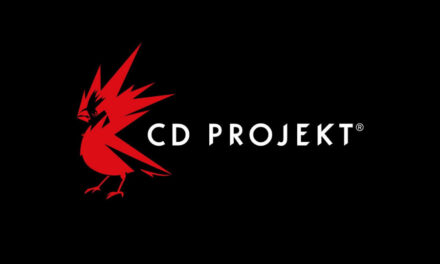
The Future is Faster Than You Think: What Today’s Students Need to Study

The pace of change in today’s world is relentless. Technological advancements, shifting demographics, and global challenges are transforming industries and reshaping the job market faster than ever before. As a result, the skills and knowledge that today’s students need to acquire have evolved significantly. In this article, we’ll explore the key areas that should be a focus of education to prepare students for the rapidly changing future.
1. Critical Thinking and Problem-Solving
As automation and AI take over routine tasks, human skills like critical thinking, creativity, and problem-solving become invaluable. Students should be encouraged to think critically, analyze information, and approach challenges with innovative solutions. They should be able to master time management and set their priorities right, e.g., hire an online essay writing service for nonessential tasks, while focusing all their energy and talents on studying data and technology. The skills they prioritize will be applicable across various professions and will be essential for adapting to complex and dynamic environments.
2. Digital Literacy and Tech Skills
In an increasingly digital world, digital literacy is no longer an option but a necessity. Students must be equipped with fundamental tech skills, from navigating software and using online tools to understanding data analysis and cybersecurity. Coding and programming skills are becoming as essential as reading and writing, as they open up opportunities in fields ranging from software development to artificial intelligence.
3. Adaptability and Resilience
The future is unpredictable, and the ability to adapt to change and bounce back from setbacks is crucial. Education should foster resilience and a growth mindset, emphasizing the importance of learning from failures and embracing change as an opportunity for growth. These qualities will help students navigate a world where career paths are less linear.
4. Emotional Intelligence and Empathy
In a highly interconnected world, interpersonal skills are vital. Emotional intelligence, including empathy and effective communication, enables students to collaborate successfully, build relationships, and understand diverse perspectives. These skills are particularly important in fields like healthzare, education, and management.
5. Sustainability and Environmental Awareness
With climate change and environmental concerns at the forefront, students need a strong foundation in sustainability and environmental science. Understanding the impact of human activities on the planet and the importance of sustainable practices is essential for addressing global challenges and creating a more sustainable future.
6. Global Competence
The world is more interconnected than ever, and students need to develop a global perspective. Learning about different cultures, languages, and global issues helps students become global citizens who can navigate international contexts and contribute to solutions for global challenges.
7. Data Literacy
Data is the new currency of the digital age. Students should be equipped with data literacy skills, enabling them to collect, analyze, and interpret data effectively. This skill is relevant in fields such as business, healthcare, and social sciences and can inform decision-making and problem-solving.
8. Entrepreneurial Mindset
Entrepreneurship is not limited to starting a business. It’s a mindset that involves creativity, risk-taking, and a proactive approach to identifying opportunities. Encouraging students to develop an entrepreneurial mindset can prepare them to innovate and adapt to changes in the job market.
9. Ethical and Moral Values
In a rapidly changing world, ethical considerations become increasingly important. Students should be taught the importance of ethical decision-making, responsible use of technology, and the impact of their actions on society. Ethical values are essential in building trust and maintaining integrity.
10. Lifelong Learning
Finally, perhaps the most critical skill of all is the ability to learn continuously. The pace of change means that today’s knowledge can become obsolete quickly. Students should develop a love for learning and the skills to pursue ongoing education and skill development throughout their lives.
Technological Skills: Navigating the Digital Frontier
In today’s fast-paced world, technological skills are the compass and map for navigating the digital frontier. Students must be fluent in the language of technology to thrive in a constantly evolving landscape. Here are some essential technological skills that students need to cultivate:
First and foremost, digital literacy is a foundational skill. Students must be comfortable using digital devices, understanding software interfaces, and navigating the digital realm.
Coding and programming skills are becoming increasingly essential. These skills empower students to speak the language of machines, opening doors to careers in fields like software development, data science, and robotics.
In the age of data, understanding data management is vital. Students should learn to collect, analyze, and interpret data, a skill relevant across various disciplines.
Cybersecurity awareness is a must. Students should know how to protect their digital assets, recognize online risks, and practice safe online behavior.
Tech troubleshooting skills are practical and save time and frustration. Knowing how to diagnose and resolve technical issues is an invaluable skill.
Digital communication proficiency goes beyond basic email etiquette. Students should be adept at using various digital communication tools and adapting their communication style to different online platforms.
Information literacy is critical. Students should learn to evaluate sources, discern credible information from misinformation, and conduct effective online research.
These technological skills empower students to not only thrive in the digital age but also leverage technology as a tool for innovation and positive change. The future belongs to those who can harness the power of technology to shape a brighter tomorrow.
The Bottom Line
As educators and policymakers, it is our responsibility to ensure that our education systems adapt to the evolving needs of students and the job market. A curriculum that incorporates these skills and knowledge areas will better prepare students for the future, empowering them to thrive in a world where the only constant is change. The future is indeed faster than we think, but with the right education, today’s students can embrace it with confidence and enthusiasm.
………………………..
Description
🚀 The Future is Faster Than You Think: What Today’s Students Need to Study
This article talks about the skills needed to be mastered by today’s students if they want to stay competitive in the labor market.



























